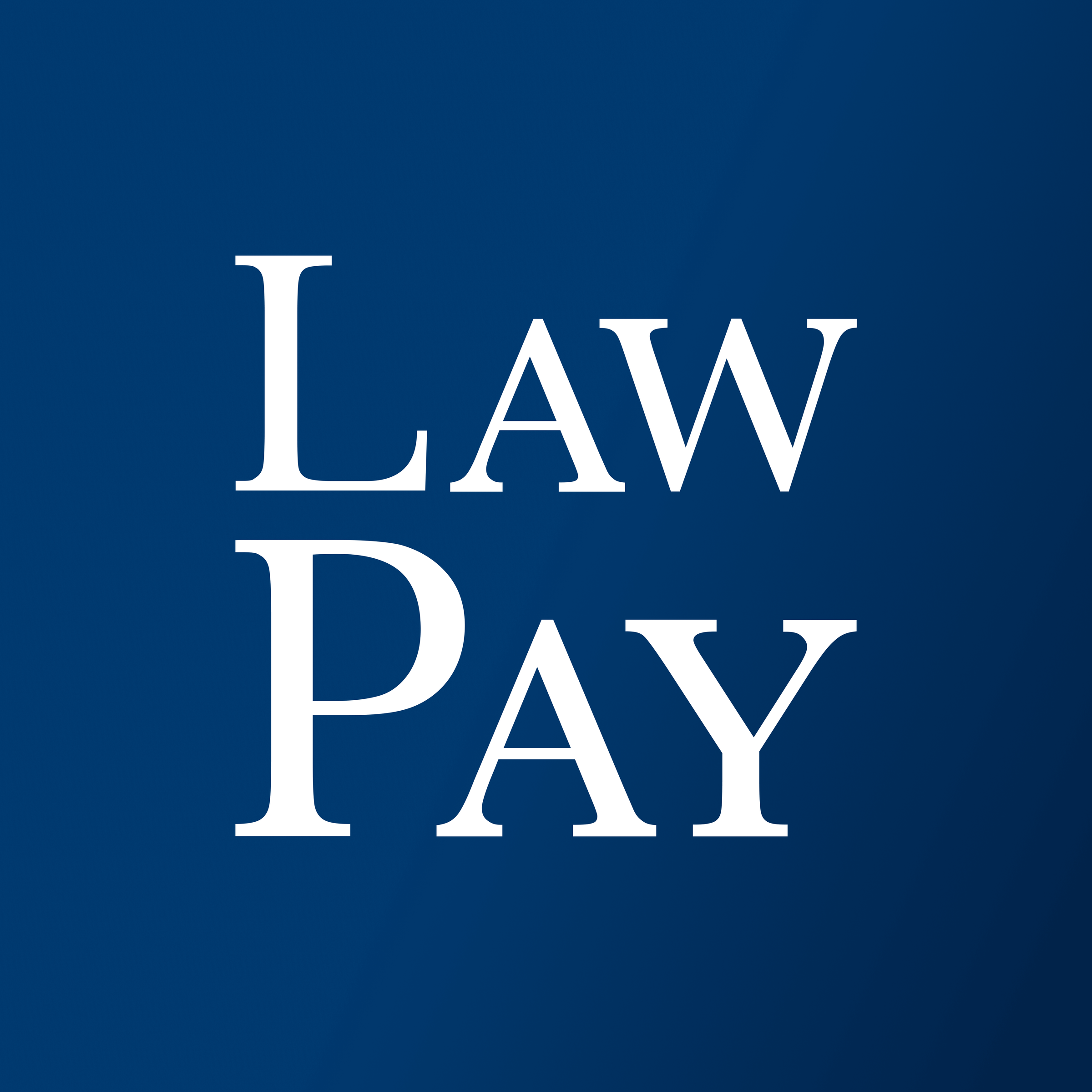There may be no more important skill for success in the practice of law than effective communication. A lawyer’s ability to communicate helps them demonstrate their empathy, knowledge, and resourcefulness when faced with changing circumstances. Further, having clients who feel respected and at ease is the foundation of a law firm’s reputation and for building healthy attorney-client relationships.
Enhancing client experiences and fostering law firm growth can be achieved by prioritizing and refining attorney-client communication skills throughout the client's journey, encompassing all stages from initial intake to case updates and billing.
Top Lawyer Communication Skills
Lawyer-client communication spans far more than simple verbal connections. Speaking, writing, listening, and nonverbal communication all come into play when communicating with clients.
Speaking: A lawyer should be able to communicate clearly with clients, break down complex legal jargon into understandable terms, provide updates on their cases, and show empathy to build trust and foster a strong working relationship.
Writing: A lawyer must draft contracts, invoices, and other client communications with accuracy to avoid misunderstandings and potential malpractice. Utilizing templates for legal invoices and other documents can help ensure that important details are never forgotten.
Listening: Active listening is key to effective communication between a lawyer and their client. The lawyer should ask clarifying questions to ensure complete understanding of the client's needs and concerns, and follow up with the client accordingly.
Nonverbal communication: A lawyer's body language should exude confidence, authority, and sincerity, whether they are meeting with a client in person or via video conference. This includes maintaining eye contact, good posture, and minimizing nervous movements.
Why Do Lawyers Need Exceptional Client Communication Skills?
Though you’ve spent years learning the ins and outs of the legal system and building your business, the same cannot be said for most of your clients. Most people would find navigating the legal system to be incredibly intimidating on their best days—and frankly, a prospective client is probably not having their best day when they seek legal help. Solid communication helps to:
Prevent negative experiences
Create a comfortable atmosphere for your clients
Reduce confusion in often complicated legal situations
Following legal communication best practices helps create a comfortable atmosphere that not only helps clients feel at ease but will also help your business run considerably smoother.
The Most Common Mistakes in Legal Communication
Lawyers are busy people, it’s easy for gaps in communication and misunderstandings to crop up if you’re not careful. Here are a few common mistakes to look out for in lawyer-client communication.
Not Using Clear Language
It is very easy for a client to feel overwhelmed. A vital part of a lawyer’s job is making sure clients have a clear understanding of what’s happening in their case.
Using too much legal jargon in your client communication is a surefire way to confuse them, which can, in turn, lead to unnecessary follow-ups or misunderstandings down the road.
Ensuring your law firm is using clear, plain language to communicate with clients is crucial to putting them at ease.
Additionally, many lawyers also don’t invest time in writing or looking for educational material about important legal topics that they can use to preemptively answer commonly-asked questions.
Not Staying Civil
As the golden rule goes, treat others as you’d like to be treated. While many people do not intend to be uncivil in their communication, it’s important to be mindful of the way you say things. Avoiding unnecessary confrontation is wise, especially in legal situations where tension runs high.
Be aware of your wording. This is especially important since most conversations happen digitally these days.
Find the balance between politeness and efficiency. Nuance can be lost in email and chat interactions. Ensure that your communication appears professional and polite without being overly wordy.
Making Predictions and Not Actively Listening
Many lawyers are tempted to “pounce” on a client to give advice they haven’t asked for. When a client doesn’t feel listened to, it can lead to frustration. After all, it’s impossible to provide good advice if you haven’t taken the time to fully grasp the unique nature of your client’s problem.
Allow the client ample opportunity to ask questions.
Ask follow-up questions. Show the client you're actively listening by answering and expanding upon their questions.
Avoid making guesses about the future. Instead, stick to talking about the present state of the case that you can back up with facts.
Not Responding in a Timely Manner
Untimely responses are a major source of client dissatisfaction. This is exacerbated when law firms rely on spreadsheets, post-it notes, and other traditional methods for staying on top of replies. Ultimately, when communication falls through the cracks, clients can feel abandoned, or like they’re not getting their money’s worth.
Over-Reliance on Automated Messages
Automated messages are useful for handling things like welcome letters, payment receipts, document copies, and other simple communications. However, automating certain aspects of a law firm’s communication, it’s not a good fit for every situation.
When clients reach out for specific information or updates on their case, nothing takes the place of human experience and empathy. In fact, if an anxious client is met with an automated response at the wrong time, it can backfire and leave a bad impression of your firm.
How to Improve Lawyer Communication
When it comes to improving communication skills for lawyers, it’s important to consider every stage of the client journey. Investing in interpersonal skills might seem like a distraction at first, reliable lawyer communication skills are one of the top traits that potential clients look for in referrals. Here are some tips for improving lawyer-client communication at every stage of the client journey:
Communicate during client intake
Provide regular case updates
Provide clear invoicing & billing instructions
1. Communication During Client Intake
Client intake is when you turn a prospective client into a paying client, and it’s a surprisingly easy part of the process to neglect. While it’s understandable to want to focus on serving your paying clients, the importance of the intake process can’t be overlooked. Intake is your chance to make a first impression and set the tone for working with you moving forward.
Below are some potential ways to improve communication during the intake process:
Have a Defined Intake Process
For some law firms, especially those just starting out, the client intake process might be more nebulous. Mapping your law firm client intake process into consistent, step-by-step pieces can help you deliver superior customer service in the earliest stages of the relationship.
Additionally, having better ways to collect important information, like a client intake form, ensures that any follow-up communication is more meaningful and conflicts are spotted earlier.
Modern case management solutions like MyCase come with functionality to streamline prospective clients through the various stages of your lead pipeline. This ensures that lawyers can easily track communication and get important information faster.
Follow Up Promptly
Responding to clients in a timely manner is one of the more crucial communication skills for lawyers. With people more online than ever, expectations of what constitutes a quick reply have changed. Regardless of how someone gets in touch, whether it’s over email, a phone call, or through an online form, most people expect a response within 24 hours.
Make sure to implement a system for keeping track of messages from every channel so nothing falls through the cracks. This is where using a specialized case and client management solution can really help, as it can automatically organize client information and remind you when it’s time to follow up with them.
Set Clear Expectations
Remember, your client is always looking for you to lead them to a solution. The objective of an interview is to set reasonable expectations: the scope of work the lawyer will do, the relief or resolution being sought, the alternatives to be explored, and the basis of the fee. Making unfounded promises or reassurances might make a client feel better in the moment but may not pay off in the long run.
By taking the time to establish a clear view of what to expect moving forward, you’ll be in a better position to collaborate with clients toward a desired outcome. At every point in the client journey, the word “collaboration” should be top of mind.
Additionally, lawyers should set expectations around communication itself.
Early on, clients should know:
What your business hours are
How soon should they should expect a response to a question
What channels (email, text, phone, etc.) are best to reach you, and where to send urgent messages
Establishing reasonable and clear boundaries upfront surrounding lawyer communication is crucial for a healthier attorney-client relationship.
2. Communicating During the Case
Once the case has started, it’s easy to lose focus on client communication in favor of doing the actual work on the case. But keeping your client informed is vital and a part of maintaining an ethical attorney-client relationship. How you communicate throughout the case will contribute a great deal to how a client perceives your performance and whether or not they believe they can count on you in the long term.
Communicate Proactively
Once a client’s case starts, don’t wait until they have a question to get in touch. Being proactive and getting ahead of a client’s questions and concerns before they come up is a communication skill that can set you apart from your peers. Like all client communication skills, there’s no one-size-fits-all way to do this, but here are a few ideas:
After every client meeting or in-person update, send a follow-up email where you summarize the meeting, set expectations for the major next step or milestone, and provide any educational/supplemental info that might be useful
Always give the client a chance to ask questions at the end of any communication.
Be honest about setbacks—no one likes bad news, but being upfront about it will help.
Technology also makes it a little easier to be proactive with your client communication.
Setting up a client portal where people can ask simple questions, review the current status of their case, and look over previous communications helps to ensure every client feels like they’re in the know.
Ensure Communications are Secure
Confidentiality is a mainstay of a healthy and ethical attorney-client relationship but can sometimes be overlooked in the digital age. At a minimum, make sure to keep any sensitive communication off of social media (including the chat function) and keep your private and professional accounts separate. Outside of social media, any client communications and sensitive information should be encrypted and password protected.
Luckily, modern case and client management software, like MyCase, has state-of-the-art security built in. Features like secure client portals not only create a safe place to talk with clients but also provide an easy way to send documents and other sensitive material securely and easily.
Collect Feedback
Always remember that the legal process is a collaborative one. Sometimes clients may request a second opinion or need to understand your thought process.
Many attorneys wait to collect feedback from clients until after the case is done—and by then, it’s too late. Set up a feedback form or take a moment to ask clients questions about your legal process during the case so you can spot any issues and fix them before it gets worse.
3. Communicating About Payment
As if entering the legal system wasn’t stressful enough, talking about payment can sometimes be even worse. However, ensuring the billing process goes smoothly is an important step in both getting paid on time and bolstering your firm's reputation.
Make Sure Your Bill is Accurate
Small billing errors can snowball into larger assumptions about your firm’s professionalism and skill. Before sending a client any bill, double check it’s accurate and that the breakdown is in clear language. Using vague terms like “file review - .3 hours” may not be obvious to a client and leave room for assumptions.
Time-tracking software and legal billing solutions can help remedy this by preparing most of this material automatically.
Fully integrating a legal billing solution with your other case management solutions frees up time spent on manual time tracking, which also instills more trust in clients.
Additionally, with legal billing software, clients can pay on a secure payment portal where they can review the bill and pay it instantly. This makes both accounts receivable management and communications a breeze, but by making it easier to pay, you’ll get paid faster too.
Vet Your Client Well
Taking the time to vet a client during client intake can save you massive headaches down the line. Before engaging with a prospect, use a client intake form to rule out any conflicts early and save everyone some time. Listen for any red flags in the consultation, such as a client who’s bounced between representation or asks about rates right away before anything else.
Also, weed out any client who tries to haggle with you—if they point out something like another law firm down the street that offers a lower price, ask yourself: “Why didn’t they go with the lawyer down the street?”
Communicate Payment Terms in Clear Language
Before taking on new casework, ensure that your client signs a written fee agreement. This is especially crucial when the client is a sole individual being charged contingency fees by your firm. The client’s signature communicates that they understand and accept the terms of your case fees, payment dates, and past-due payment fees.
This is a primed opportunity to discuss and agree upon client budget and contextually relevant life events that could affect their ability to pay on time. Keep in mind, each state employs its own contractual negotiation rules.
Like other modern communication techniques for lawyers, the key here is using plain language. While a client may have signed something legally binding, it doesn’t mean they won’t kick up trouble if they feel a payment milestone or bill is coming out of nowhere. Part of the collaborative process is making sure a client doesn’t feel deceived or cheated, and being overly communicative about payment can go a long way to making them feel included.
Include Payment Guarantees in the Agreement
If you accept credit card payments, it is highly recommended that you include “payment guarantee” language in your engagement letters. This language should directly state the client must guarantee any payment paid by their credit card to your firm. In addition, requiring clients to initial that clause can help protect your firm from a potential chargeback (and the potential ethical issues that can arise as a result).
Schedule a demo to see what LawPay can offer your firm.
Book Now
Improve Client Communication With Legal Software
While great client communication is more an art than a science, legal accounting, billing, and case management solutions can make it a whole lot easier. Leveraging technology is an easy way to make many aspects of client communication easier and more efficient. Specialized case management solutions, like MyCase, come with built-in secure client portals to share messages, and documents, along with upcoming tasks and events, all in one place.
Modern client management solutions also allow you to set up automated messages for simple communications, reminders, and other alerts based on your firm’s unique workflow and needs.
Further, legal billing solutions like LawPay can modernize the billing and payment process to meet today’s client expectations and avoid uncomfortable misunderstandings. With LawPay you can automatically track time, generate accurate invoices, and accept payments using any modern payment method.
Leverage Lawpay to Enhance Lawyer Communication
Using technology to streamline communication and billing makes it easier for lawyers to collaborate with clients on what’s most important. By combining the modern capabilities of legal technology with an added focus on clear communication, your law firm can implement a winning client-focused approach that will delight both current and prospective clients.
LawPay legal billing software and MyCase case management solutions give forward-thinking law firms everything they need to better engage with their clients. Designed by legal experts and trusted by thousands of leading law firms, our purpose-built legal solutions help streamline your day-to-day processes, increase profitability, and simplify legal payments and communication for your clients.
Book a LawPay demo today to see how we can help you get paid faster in a way your clients will love.
About the author

The LawPay Team
